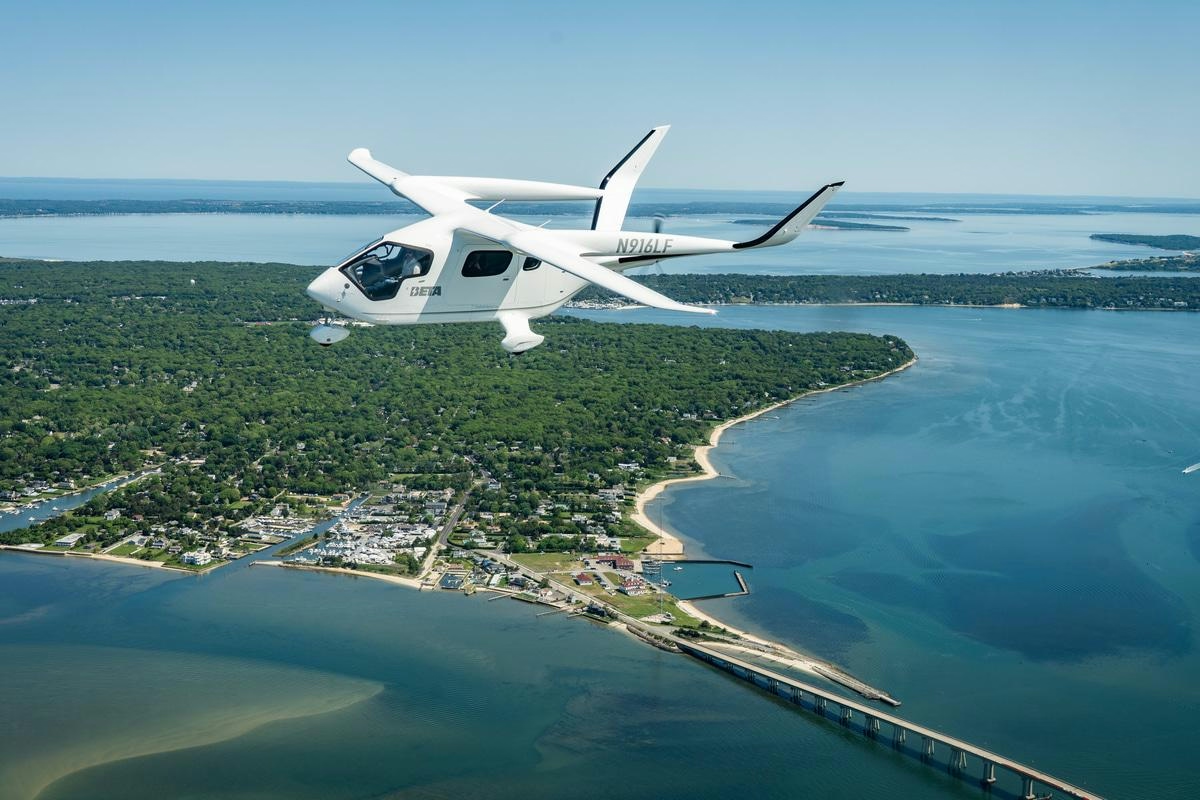AeroGenie — Ваш интеллектуальный второй пилот.
В тренде
Categories
JFK Airport Introduces Alia CX300 with 35-Minute Flights to East Hampton

JFK Airport Introduces Alia CX300: Pioneering Affordable Electric Flights to East Hampton
New York’s John F. Kennedy International Airport has taken a significant step toward the future of sustainable aviation with the introduction of the Alia CX300, an all-electric aircraft developed by Beta Technologies. On June 3, the aircraft completed a landmark 130-kilometer journey from East Hampton to JFK in just 35 minutes, carrying four passengers under the command of Beta’s CEO, Kyle Clark. This inaugural flight, priced at a remarkably low $8 per passenger, signals a transformative shift toward affordable and environmentally friendly air travel.
A New Standard in Cost and Efficiency
The Alia CX300 offers a compelling alternative to traditional modes of transportation between East Hampton and New York City. While car journeys typically take over two hours and cost between $30 and $40 in fuel and tolls, and train travel on the Long Island Rail Road requires nearly three hours at a fare of $20 to $30, the electric flight completes the trip in just over half an hour at a fraction of the cost. Conventional short-haul flights, by comparison, take approximately 30 minutes but incur fuel expenses ranging from $150 to $200. The Alia CX300’s operating costs, driven by electricity consumption of only $8 per trip, represent a dramatic reduction in both price and carbon emissions.
This milestone echoes the revolutionary spirit of the Concorde’s debut in 1976, yet it is distinguished by its emphasis on clean energy and cost efficiency. As battery technology continues to advance, electric aviation is poised to expand its reach, making short-haul routes more accessible and environmentally sustainable.
Industry Challenges and Market Implications
Despite its promise, the widespread adoption of electric aircraft like the Alia CX300 faces significant challenges. Regulatory frameworks must evolve to accommodate new safety and operational standards specific to electric aviation. Additionally, airports will need to invest in infrastructure upgrades, including charging stations and integration with existing airport operations, to support these new aircraft.
The market response to the Alia CX300’s debut has been notably positive, reflecting growing consumer demand for sustainable travel options. This shift in passenger preferences may prompt competitors within the aviation sector to accelerate the development of their own electric aircraft or enhance their marketing strategies to remain competitive. The emergence of electric aviation is thus poised to reshape industry dynamics and consumer expectations.
Future Prospects for Electric Aviation
While the Alia CX300 requires conventional runways and is currently best suited for regional routes, its successful flight from JFK underscores the viability of electric-powered air travel. In parallel, other markets are exploring complementary innovations; for example, urban air taxis designed for vertical takeoff and landing are slated for trials in India by 2026, further broadening the scope of electric aviation.
The arrival of the Alia CX300 at JFK represents more than a technological achievement—it marks a pivotal moment in the evolution of air travel. As the industry addresses regulatory and operational challenges, electric aviation is set to redefine the possibilities for cost-effective and sustainable flight.

Emirates Unveils Cabin Design for New Boeing 777X

Eighteen Years On, the Airbus A380 Remains Central to a $34 Billion Airline

How a boom in luxury airline seats is slowing down jet deliveries

Navitaire Outage Attributed to Planned Maintenance

DigiYatra Debuts Outside Aviation at India AI Impact Summit

Vietnam Orders Strengthen Boeing’s Commercial Outlook

Airbus Signals Uncertainty Over Future A400M Orders

JobsOhio Awards $2 Million Grant to Hartzell Propeller for Innovation Center

Collins Aerospace Tests Sidekick Autonomy Software on YFQ-42A for U.S. Air Force CCA Program

How the Airbus A350-1000 Compares to the Boeing 777
